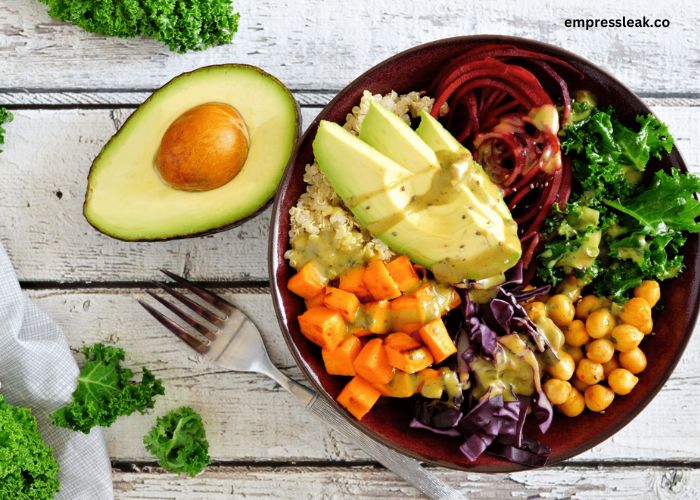In today’s fast-paced world, maintaining a healthy diet can be challenging. With the abundance of processed foods and the convenience of fast food, many individuals struggle to make nutritious choices. However, adopting a healthy eating lifestyle is crucial for overall well-being, longevity, and disease prevention. This guide will provide valuable insights into healthy eating, essential nutrients, meal planning, and tips for making better food choices to improve your quality of life.
Understanding Nutrition
Macronutrients: The Building Blocks of Health
Macronutrients are the essential nutrients that the body requires in large amounts. They include:
- Carbohydrates: Provide the primary source of energy. Opt for complex carbohydrates like whole grains, legumes, and vegetables over simple sugars.
- Proteins: Essential for muscle repair, immune function, and overall cell growth. Sources include lean meats, poultry, fish, dairy, legumes, and nuts.
- Fats: Necessary for hormone production and brain health. Choose healthy fats from sources like avocados, olive oil, nuts, and fatty fish while avoiding trans fats and excessive saturated fats.
Micronutrients: Essential Vitamins and Minerals
Micronutrients play a significant role in bodily functions, though they are required in smaller amounts. These include:
- Vitamins: A, C, D, E, K, and B-complex vitamins help support immunity, vision, skin health, and metabolism.
- Minerals: Calcium, magnesium, iron, potassium, and zinc aid in bone health, muscle function, oxygen transport, and nerve signaling.
Eating a diverse diet rich in whole foods ensures you get the necessary micronutrients for optimal health.
The Importance of a Balanced Diet
A balanced diet consists of a variety of foods from different food groups in appropriate proportions. This includes:
- Fruits and Vegetables: Aim for at least five servings per day. These provide essential vitamins, minerals, fiber, and antioxidants.
- Whole Grains: Choose whole grains like quinoa, brown rice, oats, and whole wheat bread to maintain energy levels and digestive health.
- Proteins: Incorporate lean meats, fish, beans, tofu, and eggs to meet protein requirements.
- Healthy Fats: Include sources of unsaturated fats like nuts, seeds, and fish.
- Hydration: Water is crucial for digestion, circulation, and detoxification. Aim for at least 8 cups (2 liters) of water per day.
Meal Planning for Healthy Eating
Breakfast: Starting the Day Right
A nutritious breakfast jumpstarts metabolism and provides sustained energy. Some healthy options include:
- Oatmeal with fresh berries and nuts
- Scrambled eggs with spinach and whole-grain toast
- Greek yogurt with honey and granola
Lunch: Fueling Your Midday
Lunch should be well-balanced to keep you energized. Consider:
- Grilled chicken salad with a variety of vegetables and olive oil dressing
- Brown rice with salmon and steamed broccoli
- Quinoa and chickpea bowl with mixed greens
Dinner: A Light but Nourishing Meal
Avoid heavy meals before bedtime. Some healthy dinner ideas are:
- Baked fish with roasted sweet potatoes and green beans
- Stir-fried tofu with vegetables and brown rice
- Lentil soup with whole-grain bread
Snacks: Healthy Options
Healthy snacking helps maintain energy and prevents overeating. Choose:
- Nuts and seeds
- Fresh fruit with nut butter
- Hummus with carrot sticks
Healthy Eating Habits for a Better You
Mindful Eating
Pay attention to hunger cues and eat slowly. Avoid distractions like TV or mobile phones while eating.
Portion Control
Eating the right portion sizes helps prevent overeating. Use smaller plates and listen to your body’s fullness signals.
Reduce Processed Foods
Processed foods often contain high amounts of sugar, salt, and unhealthy fats. Focus on fresh, whole foods instead.
Limit Added Sugars
Excessive sugar intake can lead to weight gain and other health issues. Opt for natural sweeteners like honey or fruit.
Cook at Home
Preparing meals at home allows better control over ingredients and portion sizes, promoting a healthier diet.
Stay Hydrated
Drinking enough water supports digestion, skin health, and overall well-being.
Plan and Prepare Meals
Meal prepping ensures healthier food choices and saves time and money.
Special Diet Considerations
Vegetarian and Vegan Diets
These diets exclude meat and sometimes dairy products. Ensure adequate protein intake from plant-based sources like beans, lentils, tofu, and nuts.
Gluten-Free Diet
Individuals with gluten intolerance or celiac disease should opt for gluten-free grains like rice, quinoa, and buckwheat.
Mediterranean Diet
This diet emphasizes fruits, vegetables, whole grains, fish, and olive oil, supporting heart health and longevity.
Low-Carb Diet
A low-carb diet focuses on reducing carbohydrate intake while increasing protein and healthy fats. This may be beneficial for weight management.
Conclusion
Adopting a healthy eating lifestyle is one of the best investments you can make for your overall well-being. By making nutritious choices, incorporating a variety of foods, and practicing mindful eating, you can achieve better health, increased energy, and a longer, happier life. Start making small, sustainable changes today, and enjoy the benefits of a balanced and nutritious diet for years to come.

